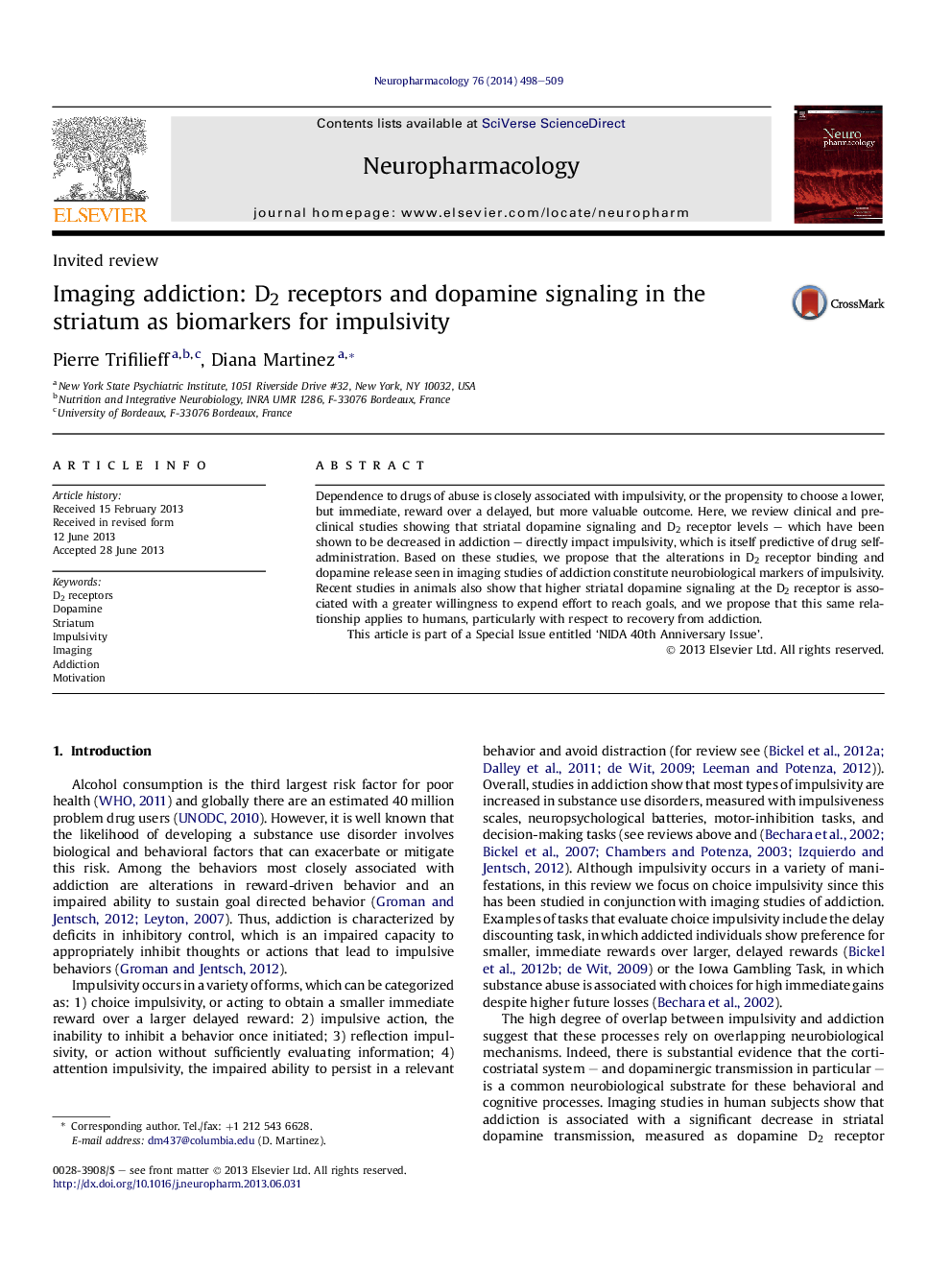| Article ID | Journal | Published Year | Pages | File Type |
|---|---|---|---|---|
| 2493295 | Neuropharmacology | 2014 | 12 Pages |
•Dependence to drugs of abuse is associated with impulsivity.•We review studies showing that dopamine and D2 receptor levels impact impulsivity.•Alterations in dopamine and D2 signaling in addiction are markers of impulsivity.•Striatal dopamine signaling at the D2 receptor is associated with treatment response.
Dependence to drugs of abuse is closely associated with impulsivity, or the propensity to choose a lower, but immediate, reward over a delayed, but more valuable outcome. Here, we review clinical and preclinical studies showing that striatal dopamine signaling and D2 receptor levels – which have been shown to be decreased in addiction – directly impact impulsivity, which is itself predictive of drug self-administration. Based on these studies, we propose that the alterations in D2 receptor binding and dopamine release seen in imaging studies of addiction constitute neurobiological markers of impulsivity. Recent studies in animals also show that higher striatal dopamine signaling at the D2 receptor is associated with a greater willingness to expend effort to reach goals, and we propose that this same relationship applies to humans, particularly with respect to recovery from addiction.This article is part of a Special Issue entitled ‘NIDA 40th Anniversary Issue’.
